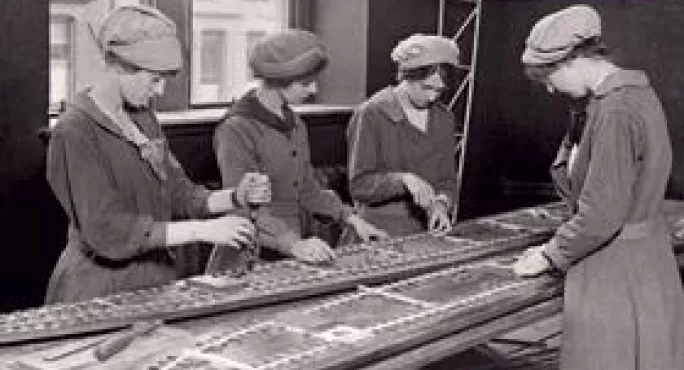`Magnificent’ scheme aims to give girls wings

Girls will be encouraged to pursue careers in engineering under a new outreach scheme for schools launched by the Women’s Engineering Society (WES).
The scheme focuses on female pioneers of engineering over the past 100 years and gives girls practical, hands-on experience of planning and building a replica aircraft wing.
Rebecca Broadbent, project manager of the Magnificent Women and their Flying Machines programme, told TESS that this was the first national outreach programme of its kind by the WES.
She added that the society was planning a number of events across Scotland this year. It is also hoping to provide training so that teachers can deliver the activities themselves.
The first event was held at Ayrshire College last month with 36 S2 pupils from six schools across South Ayrshire.
The practical side of the project is based around building replica aircraft wings, imitating work done by women in 1914 as part of the war effort. Students are given the challenge of planning and building a wing structure based on photographs, taking on the roles of project managers, designers, production staff and planners.
In the second part of the project, pupils develop a different range of skills by researching an influential female engineer and giving a presentation about her.
The girls also meet a current female engineer to find out more about possible careers in the industry, giving them an insight into a field they may feel is not open to women.
Last week, TESS highlighted the gender divide that persists in a range of sectors, including engineering (“Can jobs for the boys ever be careers for all”, News focus, 9 January). Figures published by the Scottish Funding Council last November show that 94 per cent of engineering students at colleges in 2012-13 were male.
“The girls really like the practical aspect of the activity but they also come away with a good awareness that there are people out there doing these jobs who are like them,” Ms Broadbent said.
“There was a time when women were not allowed to become engineers. Although times have changed, women still only make up a small percentage of the engineering workforce.”
Alice Ripley, a pupil at Queen Margaret Academy in Ayr who participated in the event, said: “We’ve been learning more about all the different careers within engineering and how it’s going to help us with our future. It gives you much more information for when we have to choose our options.”
Rebecca MacLennan, Stem (science, technology, engineering and maths) learning manager at Dundee Science Centre, told TESS that many pupils were surprised to find that women worked as engineers and scientists. They did not appreciate that “many engineering roles can be indoors and office-based, and aren’t necessarily on an oil rig getting dirty,” she said.
Supporting schemes such as the WES programme did not promote a “girlification” of engineering by suggesting that women could develop “a new mascara applicator or a comfortable pair of high heels”, Ms MacLennan insisted.
Instead, she said, it encouraged them to believe “that they can be the engineers developing innovative and creative solutions to the world’s greatest challenges of providing access to clean water, securing cyberspace or providing energy from fusion”.
Ms MacLennan added that exposing girls to female engineers gave them an insight into the wealth of careers available in the sector and the “fascinating” opportunities to design and create.
“Enabling them to meet females who have taken the steps to become an engineer and work in a male-dominated environment [means] they can identify positive role models to follow in the footsteps of, and start to make a change to the currently low representation of women in the sector,” she said.
For more on the Magnificent Women and their Flying Machines programme, visit www.wes.org.ukmagnificent
Keep reading for just £1 per month
You've reached your limit of free articles this month. Subscribe for £1 per month for three months and get:
- Unlimited access to all Tes magazine content
- Exclusive subscriber-only stories
- Award-winning email newsletters



